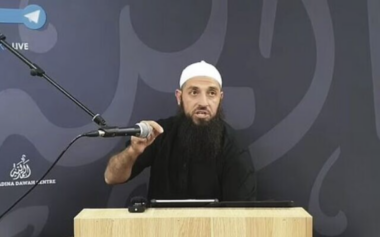MEDIA RELEASE
Sunday 24 November
Baku, Azerbaijan
For immediate use
COP29 has ended as it ran. Held hostage by the interests of high-income countries and a petrostate presidency; scarred by deep divisions; and with an unjust finance outcome that fails to progress the COP28 agreement to transition away from fossil fuels.
“We flew across oceans but high-income countries and the Azerbaijani COP presidency didn’t seriously seek ambition,” said Erin Ryan, Senior International Campaigner at Climate Action Network Australia. “An annual finance goal of USD $300 billion signed off, might sound superficially like a large number. But when spread globally for what is required to transition, it leaves us where we started: with low-income countries struggling to shoulder the rising costs of a climate crisis they never caused.”
Large blocs of developing countries, civil society activists and independent experts had all called for over USD $1 trillion per annum in financial flows from high- to low-income countries. Drawing from reliable public funds, this new finance goal was hoped to include concrete targets for funding the transition away from fossil fuels and mitigation of climate pollution; adaptation to climate impacts; and addressing loss and damage caused by the climate crisis. Instead, the COP29 gavel has come down on a significantly smaller public finance goal of USD $300 billion per annum, to be reached by 2035.
“As a wealthy nation, and a huge fossil fuel exporter, the Australian Government notably failed to drive bigger ambition, failing to listen to the voices and expertise of our Pacific neighbours. This is about realism- getting better financial arrangements is key to getting global support for rapid fossil-fuel phase-out globally,” said Ms Ryan.
Ms Ryan was also critical of the opaque and non-inclusive manner in which COP29 played out, echoing concerns raised by the bloc of small island nations.
“The climate crisis impacts us all, it’s just a matter of how extreme. For some, their islands are sinking or their homes have burned to ash. Elsewhere, rising insurance costs are hurting people already struggling with their bills. We all have a story to tell, and we all have a stake in moving quickly away from fossil fuels. It hurts to see wealthy countries come here and play games in their windowless rooms, removed from the people.”
As Australia continues its diplomatic advocacy to secure hosting rights for COP31 in 2026, Ms Ryan says that a leadership model that engages the community is needed to avoid future drawn-out debates and disappointing outcomes.
“The COP process can be salvaged. We need to cut the self-interest and get back to why we’re here: to talk earnestly and openly about a crisis that affects all of us. That means kicking out the fossil fuel and carbon dumping lobbyists, creating space for front-line communities and indigenous people to raise bold ideas, and keeping negotiators face-to-face with the realities of a runaway climate emergency.”
For media inquiries: Barry Traill, + 61 448793334

